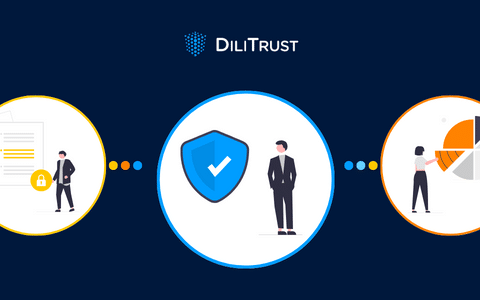Environmental, Social and Governance (ESG) and sustainability objectives are among the most critical and challenging goals for general counsel heading into 2022. The ever-growing importance of these goals has reached new heights in the post-COVID landscape, making the role of the general counsel more critical than ever.
The rise of ESG
There has been a growing interest in sustainability and corporate social responsibility from various parties in recent years. What started as corporate social responsibility (CSR) in the 1970s recently evolved into environmental, social and governance (ESG) and sustainability. Climate change, social justice movements, and the COVID-19 pandemic boosted this transformation, with ESG and sustainability rapidly becoming a central focus for boards and general counsel.
ESG goals comprise more significant concerns than the CSR agenda. In addition to an imperative to decarbonize the economy against climate change, ESG objectives also bring diversity, equity and inclusion (DE&I) initiatives forward. The ESG goals also attempt to answer the rise of social movements, employee activism, and growing concerns regarding new technologies and data.
How various actors are requesting sustainability and ESG objectives
Sustainability and ESG concerns were seemingly initiated with the Sustainability and Development Goals deployed by the UN in 2015, followed by a series of international agreements (such as the Paris Agreement on Climate Change, the OECD Guidelines on Responsible Business Conduct, etc.). As a response, central banks started imposing new regulations in order for companies to contribute to environmental goals and to respect human rights.
Subsequently, the GAFAs started implementing ESG guidelines within their policies, reshaping their identity and leading to a major shift in corporate thinking. The beginning of 2020 saw simultaneously the COVID-19 crisis and worldwide social movements such as Black Lives Matter push companies towards intensified efforts to improve ESG issues.
As a result, companies must now answer various actors, including customers and communities, employees, shareholders, and even suppliers, all demanding corporate responsibility.
How companies respond to ESG efforts
ESG focus is now a business imperative across all sectors and for all types of companies. Companies can respond by creating new roles within their organization chart, reshaping some positions, or looking at external help.
Internally, the general counsel is often put in charge of the new task. The GC might have the liberty to create a dedicated team with new roles such as Chief Responsibility Officer (CRO) and Chief Sustainability Officer (CSO).
When looking at external possibilities, companies can now order ESG consultancies from renowned agencies or law firms. For small businesses, a consultancy might help integrate ESG objectives and advise on potential HR strategies. For bigger companies, external consultants can provide a fresh vision on ESG and assess what has already been implemented.
As for the board, ESG objectives will likely require more and more time on the agenda. The board will thus be expecting to receive a clear direction from the GC and its legal team.
General counsel and ESG objectives
As ESG and sustainability are increasing in importance, so is the role of the general counsel.
The Need to Take on the Responsibility and be Proactive
Whether the board already made the call regarding ESG or not, ESG goals represent an opportunity not to be missed by the general counsel. If the board has already requested ESG implementation, the GC must act fast to present a solid action plan.
If the board proves to be somewhat reluctant to starting implementing ESG objectives, the general counsel should seize the opportunity to provide much-needed guidance on the importance of the process. The focus should be on the risks relating to the lack of compliance with ESG objectives. The GC can then advise the board on the integration of ESG and sustainability goals and present the action plan accordingly.
Coordinating with the CSO/CRO
The emergence of ESG objectives comes with the rise of two key positions:
- The Chief Sustainability Officer (CSO)
- The Chief Responsibility Officer (CRO)
These rising roles report either to the board directly or to the head of the legal team when there is one, i.e. the general counsel. These roles often shift as the level of commitment of companies evolve.
Bearing that in mind, the general counsel must work closely with the CSO/CRO and ensure their respective roles do not overlap. Depending on who reports to the board, the GC and CSO/CRO must coordinate to act as advisors to the board regarding compliance and risk mitigation. Then, they will be in charge of implementing a new strategy for a more efficient approach to effectively reach the identified ESG goals. During that phase, the GC will overview legal contracts and general documentation amendments, evaluate laws and regulation changes and how they impact the company, as well as review all the company’s practices. A further step will see the CSO/CRO take on more responsibilities and drive an innovative approach as the company starts to disseminate ESG and sustainability in all departments at all levels.
This is where the role of the GC is evolving rapidly. With the rise of the CSO and CRO, GCs must lead the change towards ESG compliance while remaining on top of their traditional responsibilities. Adaptability is a key skill, along with the ability to look ahead and set up a vision for the company.
The importance of data management in ESG
As data management has become a critical issue, it is not surprising that ESG data is essential. ESG and sustainability compliance must be supported by accurate, up-to-date, and transparent data.
The role of the general counsel here is crucial. Ultimately, the board and the legal team will determine what information is made public. ESG data is analyzed by various actors, who evaluate the ability of companies to take on ESG objectives. This data will shape the company’s public image, helping investors decide which portfolio to support.
In addition, data privacy and security are inherent to ESG objectives. Protocols must be put in place to prevent and respond to a data breach. The company’s data, including clients’ and employees’ information, must be protected at all costs. Failing that, the general counsel could be held accountable for the loss of trust from clients and investors.
Looking forward
ESG and sustainability goals will only gain more importance in the years to come. ESG and sustainability are undoubtedly shaping the business practices of tomorrow. As the leader of sustainability strategies, the general counsel is thus playing a pivotal role in shifting corporate thinking towards embedded ESG on all levels.



